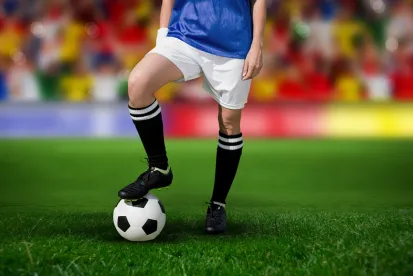Shortly after the Supreme Court granted certiorari to consider the Ninth Circuit’s ruling that the NCAA violated federal anti-trust laws by illegally limiting the value of athletic scholarships, new federal legislation has been introduced that could drastically change the world of college athletics and drastically limit the NCAA’s current authoritative stronghold on student-athletes.
Senators Corey Booker (NJ) and Richard Blumenthal (CT) have formally introduced the “College Athletes Bill of Rights.”
In August, they announced their intention to draft this legislation and foreshadowed its anticipated framework, which was endorsed by several other senators, including Vice President-elect Kamala Harris. The proposed 61 page legislation joins an ever expanding number of proposed federal bills regarding college student-athlete name image and likeness rights (NIL).
Similar to other recently introduced college athlete federal legislation proposals, the Booker-Blumenthal bill seeks to enact NIL rights for student-athletes, including the ability to market themselves individually and as a group to potentially share revenue generated from the lucrative video game marketplace.
The bill also bars schools from interfering with these NIL rights by prohibiting schools from preventing athletes from wearing the shoes of their choice during mandatory team activities, which may open the door endorsement deals in conflict with school contracts. However, the broad based language contained in the bill goes well beyond NIL rights and includes provisions that could change college athletics forever. Specifically, Booker and Blumenthal have proposed that student-athletes receive direct money from the athletic revenue they help to generate for their schools.
Commenting on his bill, Senator Booker stated,
t]he NCAA has failed generations of young men and women even when it comes to their most basic responsibility—keeping the athletes under their charge healthy and safe.”
Accordingly, the bill seeks to establish a nine-member “Commission on College Athletics,” appointed by the President and including at least five former college athletes with legal expertise, that would take a majority of the responsibility of overseeing college athletics away from the NCAA. The commission will regulate athlete endorsement contracts, certify athlete agents, monitor Title IX compliance, and establish health, wellness and safety standards for college athletes. It would also be responsible for enforcing rules laid out in the law and given subpoena power to investigate violations, along with the authority to impose penalties against institutions, conferences, and the NCAA. These penalties may range from financial penalties in excess of $10 million to the suspension of officials from working at a school or in college sports at all.
In addition to impacting the NCAA, the bill would have a significant impact on universities and their athletic departments. The Bill of Rights is the most comprehensive proposal to overhaul of college sports, addressing not just the economic rights of athletes, but their health and safety and educational opportunities.The bill’s sweeping provisions would provide the following:
-
Schools would be required to share the profit from revenue generating sports with the athletes who play those sports, after deducting the cost of scholarships
-
Student-athletes would be guaranteed a scholarship for as many years as it takes the student-athlete to obtain an undergraduate degree
-
A medical trust fund that would provide broad healthcare coverage for student athletes and be accessible to them up to five years following the end of their athletic eligibility
-
A wide range of health and safety guidelines set by the Centers for Disease Control and Prevention
-
A requirement that athletic trainers, team medical personnel, academic advisors and tutors operate and provide services to student athletes “independently from the athletic department”
-
A ban against coaches and staff influencing academic decisions like the selection of academic majors and courses
-
A prohibition against schools imposing restrictions on student athletes’ speech beyond those imposed on other students
-
The elimination of restrictions and penalties related to student-athletes for transferring from one institution to another or breaking a national letter of intent
-
The ability for student-athletes to enter a professional draft and return to college athletics, so long as they do not get paid by a professional team and inform the school of their return within seven days after the completion of that draft
-
A requirement that athletic department annually disclose revenues and expenditures, including department personnel salaries
-
A requirement that a school cannot cut a team “unless all other options for reducing the expenses of the athletic program, including reducing coach salaries and administrative and facility expenses, are not feasible”
-
A requirement that schools have academic credit courses related to financial literacy and life skills consistent with the school’s guidelines
Although other year-end spending bills and COVID-19 relief measures are expected to take precedence in Congress during the final days of the year, it is expected that this bill along with other college athlete-related legislation will likely be reintroduced in January when the new session of Congress commences.





 />i
/>i

